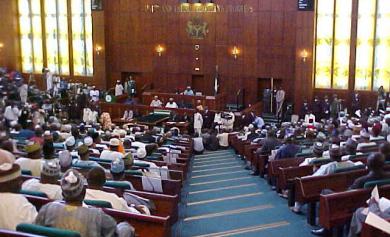
The House of Representatives yesterday unanimously adopted a resolution urging the federal government and the three affected unions to continue negotiations on the outstanding issues.
The Non-Academic Staff of University (NASU); Senior Staff Association of Nigerian Universities (SSANU) and the National Association of Technologists (NAT) are threatening to go on strike over the non implementation of the agreements on increased sundry allowances and the 65 years retirement age entered with the federal government in 2009.
In a motion Honourable Ismail Inah Hussain (Kogi/PDP), urged the House to pass a resolution urging the federal government to as a matter of urgency intervene in the impending strike while also constituting an ad hoc committee to initiate a move with the unions to stop them from carrying out their planned strike.
However, the House later decided to amend the prior resolutions making way for continued negotiation between the federal government and the unions.
Hussain in his arguments said that the strike if not averted would have dire academic, social and security consequencies on both the students and Nigerians in general.
“There are strong speculations that the leaders of the Boko Haram religious sect are graduates and merely using ‘No Western education’ agitation as a hoodwink of its followers to cause mayhem…the threats of university workers should be taken seriously to avert insecurity to lives and property in our institutions of learning.
The debates that greeted the motion were wide ranging, splitting the representatives in support and opposition.
Representative Akpodiogaga Sunny Emeyese (Delta/PDP) in a scathing attack on the federal government, flayed the executive’s typical disregard for agreements reached with labour unions.
“An agreement is an agreement…Any government that fails to respect an agreement is an irresponsible government and it is criminally intended,” he said.
Hon Femi Gbajabiamila (ACN, Lagos) while supporting the motion, noted that non-compliance with agreements reached with labour was a reoccurring problem on the part of the executive. According to him, a novel approach was needed to address the situation. He also suggested that the House should make any such agreements statutory in the constitution to enforce compliance.

